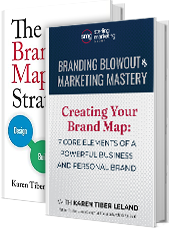
Summary:
The article discusses the benefits and strategies for entrepreneurs, executives, and CEOs considering writing a book to enhance their personal brand. It highlights five significant reasons for writing a book, including making money, generating potential customers, driving website traffic, establishing thought leadership, and contributing expertise. Additionally, it outlines ten brand-building benefits of being an author, such as increasing visibility, establishing expertise, and creating speaking opportunities. The article also offers insights into the writing process, including options like writing the book oneself, hiring a ghostwriter, or using turnkey book writing services. Moreover, it suggests considering hiring a Book CMO (Chief Marketing Officer) to assist with honing the book concept, writing a book proposal, and navigating the publishing path. Finally, it introduces SMG as a resource to help executives write, publish, and promote their books effectively.
Many entrepreneurs, executives, and CEOs get an idea at some point that they should write a book to build their personal brand. In many cases, a good book, when brought to fruition, can transform a CEO or executive brand. The desire to write a book can be driven by an intuitive feeling that now is the time, a commitment to contribute, pressure from a board of directors, encouragement from the company CMO or a thought leadership strategy.
Regardless, the first important step in building a brand is identifying the why behind the idea of writing a book. The “why” behind a leader writing a book determines how a book gets written, which publishing route the executive takes, and even the promotion plan that gets put in place.
Why Executives Should Write Books
In short, there are five significant reasons why a CEO, executive, entrepreneur, or expert may want to write a book. These include:
1. Make money from the sales of the book
2. Generate potential customers
3. Drive traffic to a website
4. Establish and enhance thought leadership
5. Contribute knowledge and expertise
Think about it like this. If you had 100 points, and I asked you to divide them between all five reasons to write a book, how many points would you give each? You can give just one reason for all 100 points or divide them as you see fit, for example. If your reason for writing a book were 100% to make money from the sales of the book, you would assign all 100 points there. However, if your reason was split, you might give making money 20 points, driving traffic to your website 50 points, and contributing your knowledge, 30 points. You get the idea.
Now that you have had a chance to consider your reason for writing a book let me offer some insight into how each plays out in real life.
Make money from sales of the book
I hate to be the bearer of bad news, but here’s the reality. A traditionally published book only provides the author with a 10% royalty. Self-publishing, which offers a more significant per-book profit (40%-60%), is not a money maker most of the time, owing to the author needing to self-fund the book writing, editing, design, publication, and promotion.
Generate potential customers
This is one area where a well-written book can be a money-maker. Consider this scenario. A potential client reaches out to you after having done a Google search. They call you on the phone and say, “Hi, I am looking for X.” X could be a dietician, an exercise coach, a divorce lawyer, or a yoga teacher. In my case, people call me looking for a branding strategist or a personal brand manager who can help implement their business or personal brand.
Being able to say those magical words, “would you like a copy of my book on the subject,” immediately enhances your credibility, gives you another touch point to show your expertise, and provides a chance to interact and follow up. Creating potential customers by writing a book is a great reason to pen your prose.
Drive traffic to a website
If a book is promoted correctly, it can be a great source of driving traffic to a website. The key is to build incentives into your book for readers to visit your website for example. Offer a quiz on your website that relates to the content in your book, provide supplementary information on your website that complements the information in your book, and offer a bonus or discount of some type on your website with proof of purchase of the book.
Establish and enhance thought leadership
Of all the reasons to write a book, this is one of the most successful. A well-written, edited, designed, and professionally laid out book with something to say and say it well can dramatically help build an executive brand. If these criteria sound apparent – they’re not. Especially in the world of self-publishing. Of all the self-published books that cross my desk, only about 20% are professionally written and produced.
Contribute knowledge and expertise
In many ways, this is the best reason to write a book. True thought leaders are filled with industry knowledge and topic expertise. They usually have decades or even a lifetime of experience they are hankering to contribute. Writing a book is an incredible way to do that.
Benefits to Writing a Book as an Executive.
Regardless of the personal reason(s) a CEO, executive or entrepreneur decides to write a book, the brand-building benefits of being an author are deep and diverse. Think of a book as a unique multi-purpose brand-building tool that can uplift a personal, executive, entrepreneurial, CEO, and business brand. Beyond potential financial returns (which I’ve already made a case for being minimal at best), The ten best brand benefits that come from penning a book include:
1. Increases visibility and name recognition and raises your company’s and executive brand’s profile.
2. Establishes you as an expert in your topic or niche, an authority in your field, and a source of credibility in your industry.
3. Drives traffic to your Web site via links from book excerpts, free samples, reviews, newsletter distribution, and blog mentions.
4. Introduces you to potential clients and increase deal flow and opportunities to interact with would-be customers.
5. Creates opportunities for speaking engagements. Having a book puts you ahead of competitors regarding keynote speaking at conferences, moderating, or being on a panel.
6. It Makes a great calling card to send before you meet with a potential client to show your knowledge, expertise, and point of view.
7. Serves as an excellent follow-up touch point after speaking with a potential client or meeting with someone you connect with at a conference.
8. Causes you to develop content you can repurpose for marketing collateral and turn into podcasts, webcasts, social media, blog posts, and white papers.
9. It Makes an excellent source for a PR campaign, giving you a legitimate reason to reach out to the press and media.
10. It Makes an impact on the reader and creates a legacy. Nothing is quite as satisfying as hearing from a reader who tells you that your book has made a difference for them. Long-term legacies are made of contributions, not cash.
How To Write a Book
At this point in the article, you have hopefully realized (and are excited about) what a book could do for your executive brand and business. But deciding to write a book is just the start of the process. The unfortunate part is that you eventually must put pen to paper or fingers to keys. You need to know a few basics about writing books to avoid wasting time and money. As a start, there are several questions to ask yourself.
- Do I have the writing talent necessary to pen my own book?
- Do I have the time, or am I willing to write this book myself?
- Do I have the money to hire a top-notch ghostwriter?
- Is the content from this book so complicated or in-depth that I would need help having someone else write this?
There are three primary paths a CEO or executive can take to get a book from idea to shelf. Each carries its pros and cons, and there is no correct answer. The path to writing a book to build your brand heavily depends on your talent, time, and the amount you are willing and able to spend on publishing the book.
- Write the book yourself
The pro to this path is that there is no one between you and your voice. You can put your thoughts on paper with no interpreter in the middle. The con is that even if you have the writing talent to create a top-notch piece of nonfiction, you will still need to engage a professional editor to ensure your book meets specific standards of excellence. In addition, you may be so close to the topic that you can have blind spots that impact the quality of the book.
- Hire a professional ghostwriter
A good ghostwriter can be a gift for those CEOs and executives who have all the ideas lined up in their head, but have trouble expressing them on paper. The pros include saving you the time and energy of writing the book and engaging someone with a depth and breadth of experience in penning successful business books. The biggest con is that you are putting your thoughts and expertise in the hands of someone who is likely not an expert in your field. This can mean several versions are necessary to get a book that accurately represents your expertise and voice. Ghostwriting companies can also match you with a writer to work with. However, buyer beware. Ghostwriting companies usually work with competent, but mid-tier talent who don’t necessarily have an expertise in business book writing.
- Hire a turnkey book writing service
As someone who has ghostwritten a dozen books for CEOs and executives, I am biased. However, this method is my least favorite for getting an executive book written to build a brand. I rarely recommend that my clients go this route. Here’s why. Turnkey book writing services employ less experienced or more rudimentary writers to pen their clients’ books. This can mean a writer who speaks English as a second language, does not specialize in business books, or writes in a basic, but not sophisticated, style. The pro to this service is that they often get a book written quickly and with minimal effort required by the author. Be warned, they can also be up to three times the cost of a personal ghostwrtiter. The same applies to freelance bidding websites, where you can hire an author who bids on your project.
Consider Hiring a Book CMO (Chief Marketing Officer)
You have written and published your book. Now what? Writing the book is the easy part. The real work begins after the book is published. To be successful in publishing today, a well-thought-out book marketing plan is essential. A book CMO can help the CEO or executive formulate an effective book marketing plan and, more importantly, manage its execution. Ideally, the book CMO will have experience in book PR and media placement, media coaching, and social media promotion, among other areas.
Keep in mind that even for professional writers, conceiving, writing, publishing, and promoting a book always takes more time (and money) than you think it will. The problem is that many CEOs, executives, and experts find the process overwhelming. A book CMO can help you navigate the tricky waters of book writing, publishing, and promotion. An executive can use a book CMO to build their brand in three specific ways.
Hone the concept
Even for an expert, coming up with an idea and outline for a book can take time and effort. Deciding on the specific principles, beliefs, models, research, concepts, opinions, etc., that go into forming a book is more complicated than it looks. Never mind sorting all this into a logical, readable manuscript that makes sense. An experienced book CMO can help a CEO or executive efficiently and effectively sort out the book’s focus, content, and organization. This can include but is not limited to, coming up with the book and chapter titles – a whole project in and of itself.
Write a book proposal
A formal book proposal is required to sell a nonfiction book to a publisher or locate an agent to sell the book. In short, a book proposal is a 30- to 50-page business plan for your book that incorporates specific sections, including an overview, about the author, a chapter-by-chapter outline, a marketing plan, a comparative book analysis, and sample chapters.
It can take three to six months to write a saleable book proposal. A book CMO who knows the book business and has successfully written book proposals before can save a busy CEO or executive a great deal of time and help increase the chances that a reputable publisher or agent will acquire the book. Securing an agent or publisher in today’s highly competitive book publishing world can be challenging. A dedicated consultant with connections in the industry can short-cut the process.
Shepard the publishing path
Should you self-publish, traditionally publish, or use a hybrid publisher for your book? The options are vast, and there are no correct answers. A great deal depends on the reasons you are writing a book, the strength of your platform, and your topic. A book CMO should be familiar with these options and can help guide the CEO or executive through the choices to find the right path.

Let SMG help you get your book written, published, and promoted
SMG has ghostwritten more than a dozen books for CEOs, executives, and experts looking to build their brand by writing a book. In addition, CEO Karen LeLand has penned numerous book proposals sold to publishing firms and agents. Karen is a best-selling author who has written 12 traditionally published books that have sold more than 450,000 copies.
In addition, once the book content is finalized, SMG can have the book professionally designed, including the front and back cover and interior layout. When it’s perfect and ready to go, SMG will get the book placed on Amazon for sale.
Finally, SMG can work with the CEO or executive to create and execute a professional book promotion plan that focuses on selling the book and building the executive brand. The work can include the following:
- Creating an online press kit for at-a-glance information
- Creating and updating/modifying the book or personal website
- Updating the author’s LinkedIn and bio for book promotion
- Coming up with book Q&A, FAQs, tip sheets
- Determining book SEO keywords and phrases
- Setting up book social media (LinkedIn, Twitter, blog, etc.)
- Create necessary emails for the book launch and Amazon bestseller campaign
- Conducting information gathering and competitive research, as appropriate.
- Content development, including copywriting and rewrites as needed for PR campaigns, including primary and secondary news hooks.
- Compiling an enhanced, customized, targeted traditional (not social) media (journalist) list across all mediums (online, print, and broadcast), including outlet, contact name, title, phone, email address, postal address, etc., of contacts relevant to each campaign.
- Distributing press releases, pitch letters, or articles via email to custom-compiled media lists and conducting subsequent follow-up efforts to secure interviews/coverage.
- Functioning as a media liaison and publicist, serving as the go-between for all media contacts to provide additional information, coordinate interviews, and offer headshots/artwork, etc.
- Outreach to specific writers, journalists, producers, editors, and other targeted media who are the audience for the book message. These lists are customized and developed for each book.
If you have any questions about working with SMG or starting your book writing process, feel free to contact us. We look forward to speaking with you.
